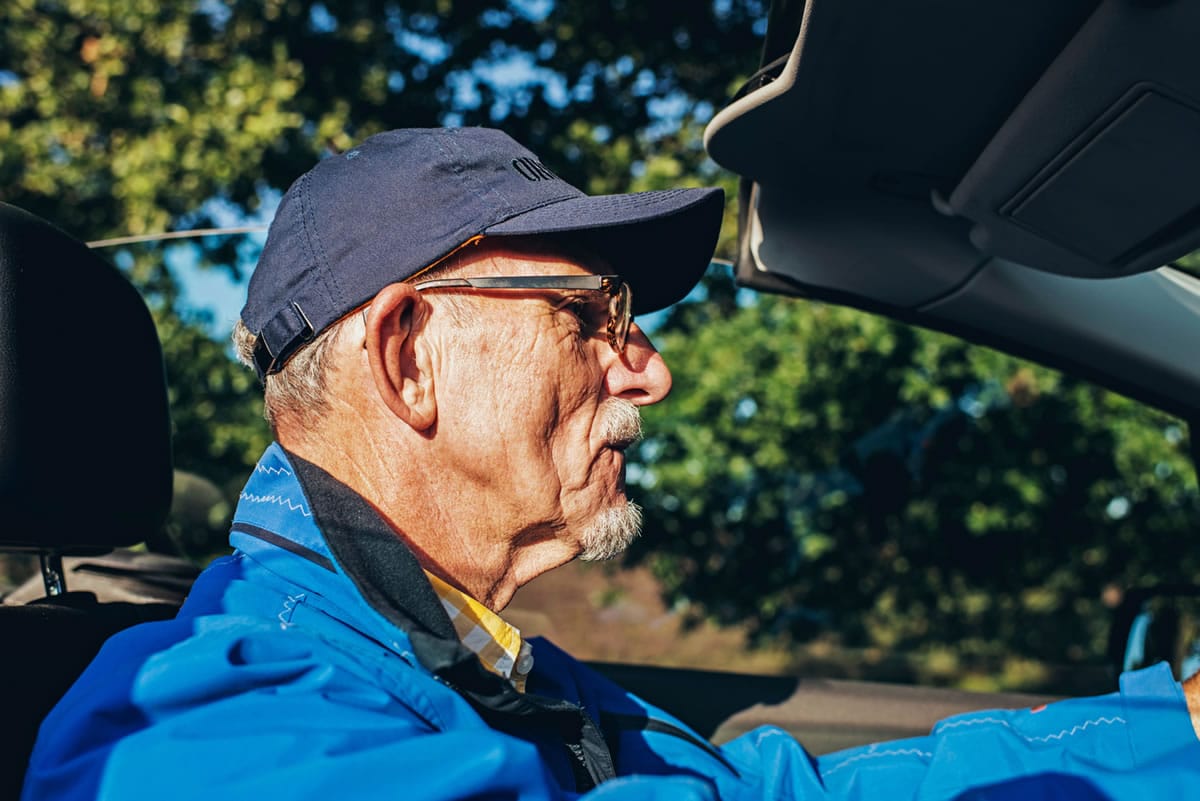Harriet Kelly has one word to describe the day she stopped driving four years ago: miserable.
“It’s no fun when you give up driving, I just have to say that,” she says.
Kelly, who lives in Denver, says she started to notice her eyesight decline in her 80s. She got anxious driving on the highway, so she decided to stop before her kids made the move for her.
“I just told them I’d stop driving on my birthday, my 90th birthday, and I did. And I was mad at myself because I did it,” she says, laughing. “I thought I was still pretty good!”
Kelly is now 94. She says her last accident was in the 1960s. But, she says, “I think it’s just better to make up your own mind than have your kids go through trying to tell you and end up with arguments and threats and everybody gets mad.”
Her daughter Leslie Kelly says she’s grateful that she and her siblings didn’t have to have that tough conversation. Still, she knows it has been difficult for her mom.
“It really cut down on her ability to feel independent,” says Leslie. Harriet chimes in, “It certainly did!”
But Kelly is a great example of planning for a “driving retirement,” says Dr. Emmy Betz, with the University of Colorado School of Medicine.
“Retirement is something that happens to all of us. Maybe we even look forward to it. You prepare for it, you make financial plans, you think about what you’re going to do,” she says.
But she says most seniors don’t do that when it comes to driving.
“It’s sort of the elephant in the room that no one wants to talk about, but it’s an issue that’s coming for most of us and our family members, and so denial isn’t probably the most helpful option,” she says.
“Transportation is a huge issue that we need to address,” says Jayla Sanchez-Warren, director of the Area Agency on Aging for the Denver Regional Council of Governments. For seniors, she says, a lack of transportation also “contributes to so many other things, like poor health care outcomes, isolation and depression.”
A recent report by the AAA Foundation for Traffic Safety and Columbia University found older adults who give up the keys are nearly two times more likely to suffer depression than those who keep driving.
Betz urges families to plan ahead, talk about it years before it happens and map out transportation alternatives.
“Imagine if I told you to give me your keys and you can no longer drive, starting right now,” she says. “I mean, what would you do? It’s totally unrealistic that we think that that’s an OK thing to do to older people.”
It will become an issue in lots of families. Nationally, until 2030, 10,000 baby boomers will turn 65 each day. Drivers can get a discount on their insurance by taking a driver safety class.
At a senior center just outside of Denver, Chris Loffredo teaches just such a class. She asks the 20 attendees to think about everything from how medications might affect them to how new technologies in cars may help them. And she wants them to strategize.
“You have to know when to give up your keys!” she tells them.



